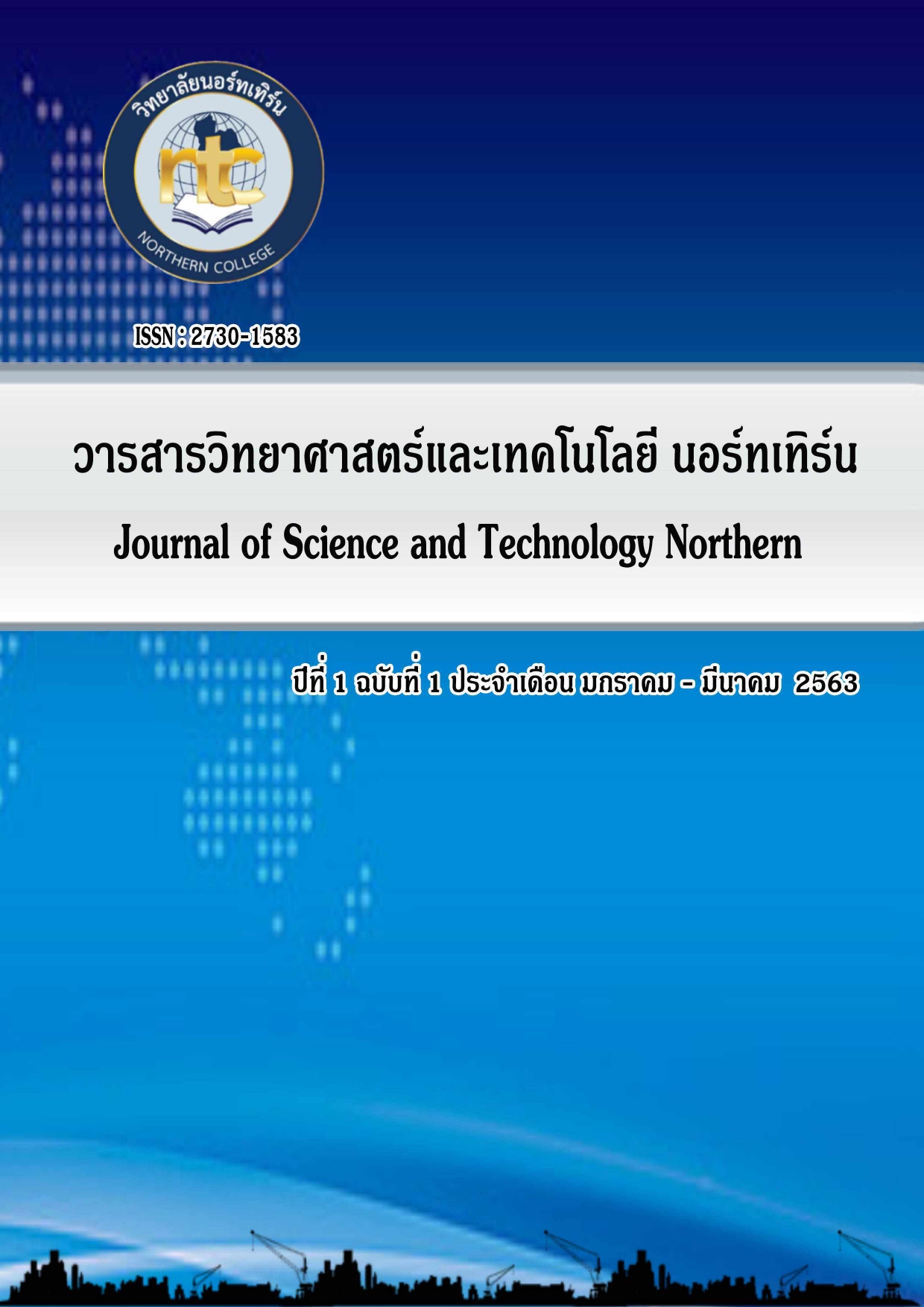Knowledge and Attitude Associated with Health Promoting Behaviors among Employees in Panyapiwat Institute of Management
Keywords:
Knowledge, Attitude, Health Promoting BehaviorsAbstract
This descriptive research aimed to study knowledge and attitude associated with health promoting behaviors among employees in Panyapiwat Institute of Management. Population was 657 employees working in Panyapiwat Institute of Management before January 2019. The sample size calculating used Daniel formula for 250 cases. Data were collected by questionnaires composed of 4 parts; personal characteristics, knowledge, attitude and health promoting behaviors. Validity was checked by 3 experts and try out testing reliability by Cronbach’s coefficient alpha was 0.92, and statistic analyzed by Pearson’s Product Moment Correlation Coefficient. The result showed that knowledge health promoting behaviors among employees had mean score with high level 77.20% ( =2.73 , S.D. =0.517). Attitude about health promoting behaviors among employees had mean score with high level 65.20% (
= 2.64 , S.D. = 0.486). Health promoting behaviors among employees had mean score with moderate level 59.60% (
= 2.40 , S.D. = 0.491). Association analysis found that knowledge and attitude were positively associated with health promoting behaviors with significance at 0.05 (r = 0.216 , P-value < 0.001 , r = 0.211 , P-value < 0.001 , respectively). The suggestions from the study , the institute should be educated employees about health promotion because the employees have incorrect knowledge , and encourage them to have selfcare and realize the importance and advantages of exercise by providing exercise areas and resources. Moreover , employees should be encouraged to have positive attitudes and forward them to other people because positive attitudes make healthy behaviors happen.
References
ฉัตรณรงค์ พุฒทอง และคณะ. (2561). ปัจจัยที่มีความสัมพันธ์กับพฤติกรรมการดูแลสุขภาพของตนเองด้วยวิถีการแพทย์แผนไทย และการแพทย์ทางเลือกของอาสาสมัครสาธารณสุขประจำหมู่บ้าน อำเภอ ทุ่งเสลี่ยม จังหวัดสุโขทัย. วารสารพยาบาลกระทรวงสาธารณสุข, 156-165.
ธาริน สุขอนันต์ และคณะ. (2557). ปัจจัยที่มีผลต่อพฤติกรรมการออกกำลังกายของผู้สูงอายุในเขตเทศบาลเมืองบ้านสวน จังหวัดชลบุรี. วารสารสาธารณสุขมหาวิทยาลัยบูรพา, 9(2), 66-75
ปราณี อ่อนศรี. (2559). ความรู้ ทัศนคติ และพฤติกรรมการส่งเสริมสุขภาพของนักเรียน พยาบาลกองทัพบก. วารสารพยาบาลทหารบก, 17(3), 158-167.
สถาบันการจัดการปัญญาภิวัฒน์. (2562). ข้อมูลสถิติผู้ใช้บริการห้องพยาบาล สถาบันการจัดการปัญญาภิวัฒน์.
สมบัติ กาวิลเครือ. (2560). ปัจจัยที่เกี่ยวข้องกับพฤติกรรมการออกกำลังกายของผู้สูงอายุ อำเภอเสริมงาม จังหวัดลำปาง. วารสารดุษฎีบัณฑิตทางสังคมศาสตร์, 7(3), 161-173.
อโนทัย ผลิตนนท์เกียรติ และคณะ. (2561). ปัจจัยที่มีความสัมพันธ์ต่อพฤติกรรมการออกกำลังกายของนักศึกษากายภาพบำบัด มหาวิทยาลัยหัวเฉียวเฉลิมพระเกียรติ. วารสาร มฉก.วิชาการ, 21(42), 55-64.
อานนท์ สีดาเพ็ง และนิคม มูลเมือง. (2556). พฤติกรรมส่งเสริมสุขภาพของนักศึกษามหาวิทยาลัยแม่โจ้. วารสารศิลป์ศาสตร์มหาวิทยาลัยแม่โจ้. 1(1), 59-105.
Best, J. W. (1977). Research in education. (3rd ed.). New Jersey: Prentice Hall.
Bloom, B. S. (1968). Mastery learning. UCLA – CSEIP Evaluation Comment. 1(2) Losangeles: University of California at Los Angeles.
Daniel, W. W. (1995). Biostatistics: A foundation for analysis in the health sciences. New York: Wiley & Sons.
Dewey, J. (1976). Moral Principle in Education. Boston: Houghton Mifflin Co.
Pender, N. J. (1996). Health Promotion in Nursing Practice. New York: Appleton and Lange.
Rosenberg, R. J. & Hovland,C. I. (1960). Attitude Organization and Change : And Analysis of Consistency Among Attitude Components. Wesport: Greenwood Press.
Wiersma, W. & G. Jurs, S. (2009). Research Method in Education an Introduction. (9 th ed). Massachusetts: Pearson.
World Health Organization. (1986). Ottawa Charter for Health Promotion. Geneva: World Health Organization.
Downloads
Published
How to Cite
Issue
Section
License
Copyright (c) 2020 Journal of Science and Technology Northern

This work is licensed under a Creative Commons Attribution-NonCommercial-NoDerivatives 4.0 International License.







